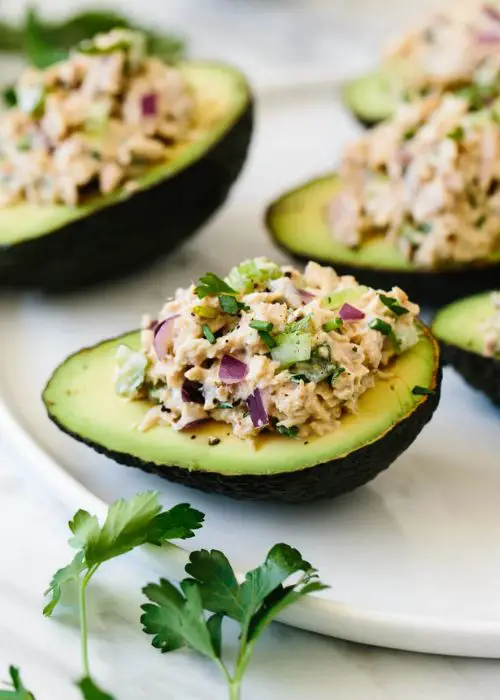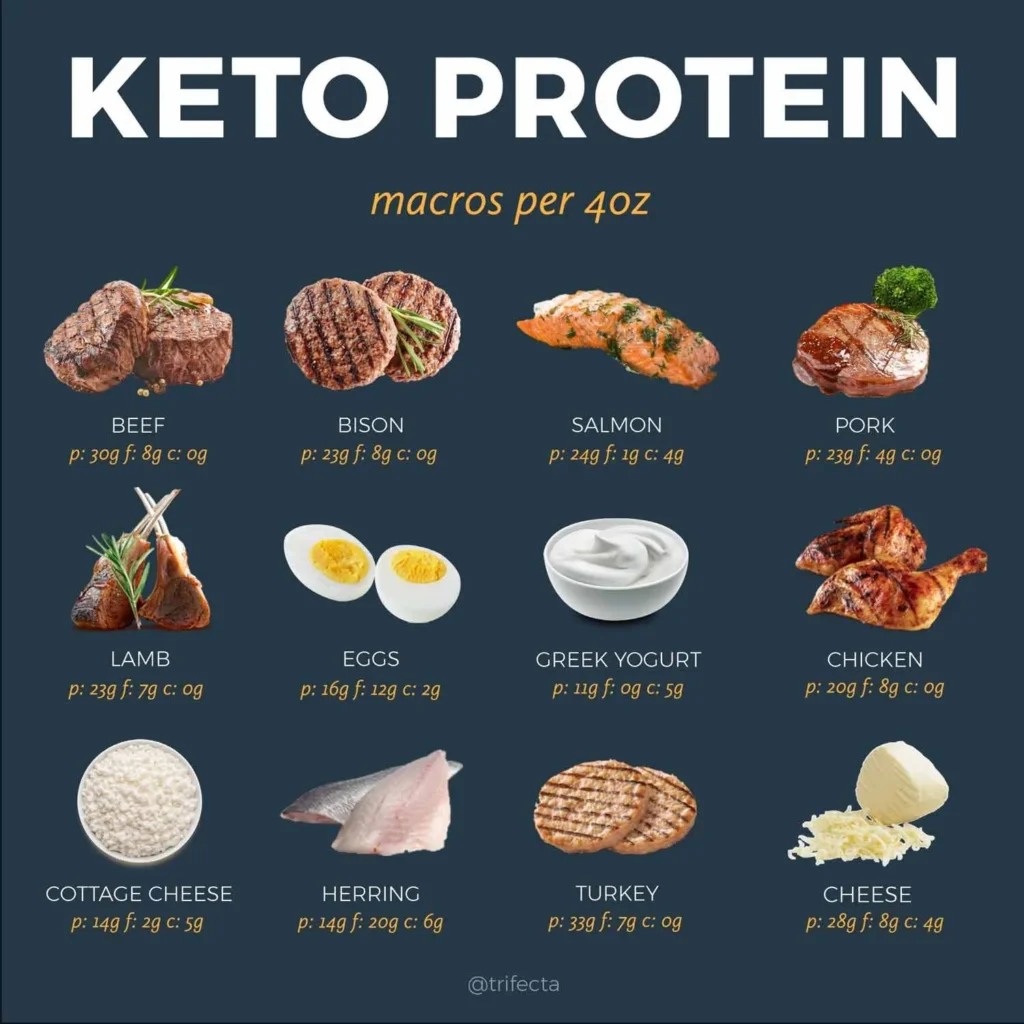From Avocados to Zucchini: The A-Z of Keto Foods
The ketogenic diet has gained immense popularity in recent years for its ability to promote weight loss, improve energy levels, and support overall health. This high-fat, low-carb diet has been shown to be effective for a wide range of health conditions, from obesity to epilepsy to Type 2 diabetes. One of the key factors in the success of the ketogenic diet is the wide variety of foods that are allowed, making it easier for people to stick to the diet long-term. In this article, we will explore the A-Z of keto-friendly foods, from avocados to zucchini, and provide answers to some frequently asked questions about the ketogenic diet.
Avocados
Avocados are a staple of the ketogenic diet, thanks to their high fat content and low carbohydrate count. Avocados are rich in monounsaturated fats, which can help to lower cholesterol levels and reduce inflammation in the body. They also contain fiber, vitamins, and minerals, making them a nutritious addition to any keto meal.
Bacon
Bacon is a popular choice for those following a ketogenic diet, as it is high in fat and low in carbohydrates. However, it is important to choose high-quality, nitrate-free bacon to avoid harmful additives.
Coconut Oil
Coconut oil is a great source of healthy fats and can be used in cooking, baking, and as a substitute for butter in recipes. It also has antimicrobial and anti-inflammatory properties, making it a beneficial addition to the ketogenic diet.
Eggs
Eggs are a versatile and nutritious food that is a staple of the ketogenic diet. They are high in protein and healthy fats, making them a great choice for breakfast, lunch, or dinner. Eggs can be cooked in a variety of ways, from scrambled to boiled to fried, making them a versatile option for keto meals.
Fish
Fish is an excellent source of protein and healthy fats, making it a great choice for those following a ketogenic diet. Fatty fish such as salmon, mackerel, and sardines are particularly beneficial, as they are high in omega-3 fatty acids, which have been shown to reduce inflammation and improve heart health.
Green Vegetables
Green vegetables such as spinach, kale, and broccoli are low in carbohydrates and high in fiber, making them a great choice for keto-friendly meals. They are also rich in vitamins, minerals, and antioxidants, making them an important part of a balanced ketogenic diet.
Hamburger Patties
Hamburger patties are a convenient and tasty option for those following a ketogenic diet. They are high in protein and fat, making them a satisfying choice for meals. It is important to choose high-quality, grass-fed beef for the best nutritional benefits.
Ice Cream (Keto-friendly)
Believe it or not, you can still enjoy ice cream on a ketogenic diet! There are many keto-friendly ice cream options available that are made with ingredients such as coconut milk, heavy cream, and stevia. These ice creams are low in carbohydrates and sugar, making them a guilt-free treat for those following a ketogenic diet.
Jerky
Jerky is a convenient and portable snack that is high in protein and low in carbohydrates, making it a great choice for those following a ketogenic diet. It is important to choose jerky that is free of added sugars and preservatives to ensure it is keto-friendly.
Kale Chips
Kale chips are a crunchy and flavorful snack that is low in carbohydrates and high in fiber, making them a great choice for those following a ketogenic diet. They are easy to make at home by baking kale leaves with olive oil and seasonings until crispy.
Lettuce
Lettuce is a low-carb, high-fiber vegetable that is a great choice for those following a ketogenic diet. It can be used as a base for salads, wraps, and sandwiches, making it a versatile option for keto meals.
MCT Oil
MCT oil is a type of fat that is easily converted into ketones by the body, making it a popular choice for those following a ketogenic diet. It can be added to coffee, smoothies, and salad dressings to increase fat intake and support ketosis.
Nuts
Nuts are a great source of healthy fats, protein, and fiber, making them a nutritious snack for those following a ketogenic diet. Some of the best nuts for keto include almonds, walnuts, and macadamia nuts, as they are low in carbohydrates and high in fat.
Olive Oil
Olive oil is a healthy fat that is rich in monounsaturated fats and antioxidants, making it a great choice for those following a ketogenic diet. It can be used in cooking, salad dressings, and marinades to add flavor and healthy fats to meals.
Pork Rinds
Pork rinds are a crunchy and satisfying snack that is low in carbohydrates and high in protein, making them a great choice for those following a ketogenic diet. They can be enjoyed on their own or used as a substitute for breadcrumbs in recipes.
Quiche
Quiche is a versatile and delicious dish that can be made with a variety of keto-friendly ingredients, such as eggs, cheese, and vegetables. It is a great option for breakfast, lunch, or dinner, and can be customized to suit individual tastes.
Raspberries
Raspberries are a low-carb fruit that is high in fiber and antioxidants, making them a great choice for those following a ketogenic diet. They can be enjoyed on their own or added to recipes such as smoothies, salads, and desserts.
Salami
Salami is a flavorful and convenient snack that is high in fat and protein, making it a great choice for those following a ketogenic diet. It is important to choose high-quality, nitrate-free salami to avoid harmful additives.
Tofu
Tofu is a low-carb, high-protein food that is a great choice for those following a ketogenic diet. It can be used in a variety of recipes, from stir-fries to salads to smoothies, making it a versatile option for keto meals.
Udon Noodles (Keto-friendly)
Believe it or not, you can still enjoy noodles on a ketogenic diet! There are many keto-friendly noodle options available that are made from ingredients such as konjac root, shirataki noodles, and zoodles (zucchini noodles). These noodles are low in carbohydrates and calories, making them a great alternative to traditional pasta.
Vegetable Stir-fry
Vegetable stir-fry is a quick and easy meal that is low in carbohydrates and high in fiber, making it a great choice for those following a ketogenic diet. It can be made with a variety of keto-friendly vegetables, such as broccoli, bell peppers, and mushrooms, and can be customized with your favorite seasonings and sauces.
Walnuts
Walnuts are a nutritious nut that is high in healthy fats, protein, and antioxidants, making them a great choice for those following a ketogenic diet. They can be enjoyed on their own or added to recipes such as salads, oatmeal, and baked goods.
Xylitol
Xylitol is a sugar alcohol that is often used as a low-carb sweetener in keto-friendly recipes. It has a similar taste to sugar but is lower in calories and carbohydrates, making it a popular choice for those following a ketogenic diet.
Yogurt (Greek, full-fat)
Greek yogurt is a high-protein, low-carb food that is a great choice for those following a ketogenic diet. It is rich in probiotics, which can support gut health and digestion, and can be enjoyed on its own or used as a base for smoothies, sauces, and dips.
Zucchini
Zucchini is a low-carb, high-fiber vegetable that is a great choice for those following a ketogenic diet. It can be used in a variety of recipes, from zoodles to muffins to fritters, making it a versatile option for keto meals.
Frequently Asked Questions about the ketogenic diet
Q: What is the ketogenic diet?
A: The ketogenic diet is a high-fat, low-carb diet that has been shown to promote weight loss, improve energy levels, and support overall health. It works by forcing the body to burn fat for fuel instead of carbohydrates, leading to a state of ketosis.
Q: What foods are allowed on the ketogenic diet?
A: The ketogenic diet allows for a wide variety of foods, including meat, fish, eggs, dairy, nuts, seeds, vegetables, and healthy fats. Foods to avoid on the ketogenic diet include grains, sugar, processed foods, and high-carb fruits.
Q: How long does it take to get into ketosis?
A: It typically takes 2-7 days to enter ketosis, depending on individual factors such as carbohydrate intake, activity level, and metabolism. Some people may experience symptoms of the “keto flu” during this transition period, such as fatigue, headaches, and irritability.
Q: Is the ketogenic diet safe for everyone?
A: The ketogenic diet is generally safe for most people, but it may not be suitable for those with certain health conditions, such as Type 1 diabetes, kidney disease, or eating disorders. It is always best to consult with a healthcare professional before starting a new diet.
Q: Can I drink alcohol on the ketogenic diet?
A: Alcohol can be consumed in moderation on the ketogenic diet, but it is important to choose low-carb options such as dry wines, spirits, and light beers. Alcohol can slow down weight loss and may affect ketosis, so it is best to consume it sparingly.
Q: How can I make the ketogenic diet more sustainable?
A: To make the ketogenic diet more sustainable, focus on eating a variety of nutrient-dense foods, staying hydrated, getting plenty of sleep, and incorporating regular physical activity into your routine. It is also helpful to plan ahead, meal prep, and find keto-friendly alternatives for your favorite foods.
In conclusion, the ketogenic diet offers a wide range of delicious and nutritious foods to choose from, making it easier to stick to the diet long-term. By incorporating a variety of keto-friendly foods into your meals, you can enjoy a balanced and satisfying diet that supports your health and weight loss goals. Whether you’re a fan of avocados, bacon, or zucchini, there is a keto-friendly option for everyone to enjoy. So why not give the ketogenic diet a try and see the amazing benefits for yourself?

